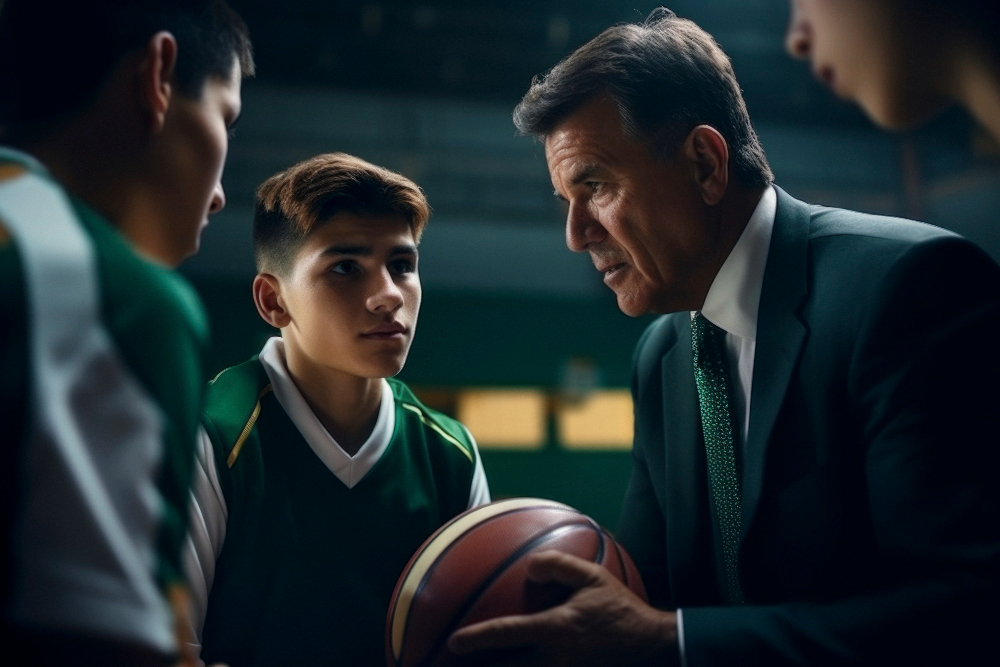Sports psychology techniques are essential tools for athletes seeking to gain a mental edge. Beyond physical training, success in sports often depends on mental resilience, focus, and emotional control. Elite athletes, from Olympic champions to professional footballers, rely on these techniques to maintain peak performance under pressure.
Consider Serena, a young tennis player preparing for her first major tournament. While her strokes were impeccable, she struggled with anxiety before matches. By incorporating sports psychology techniques such as visualization and self-talk, she transformed her mental state, allowing her skills to shine. This story illustrates the profound impact these methods have on real-life performance.
The Science Behind Sports Psychology Techniques
At its core, sports psychology is about understanding how the mind affects physical performance. Athletes often face intense pressure, distractions, and high expectations. Techniques like goal setting, imagery, and concentration drills are designed to enhance focus, manage stress, and improve confidence.
Researchers have found that athletes who engage in regular mental training demonstrate better reaction times, reduced anxiety, and higher consistency. It’s not just about thinking positively—it’s about rewiring thought patterns to maximize performance.
Visualization and Mental Imagery
One of the most powerful sports psychology techniques is visualization. Athletes mentally rehearse movements, strategies, and scenarios before performing them physically. By imagining every detail—muscle movements, environmental conditions, and emotional responses—they train their brains to react effectively during competition.
Professional swimmers often visualize every stroke and turn before a race. By mentally practicing, they enhance coordination, reduce mistakes, and boost confidence. This simple yet effective technique allows athletes to anticipate challenges and respond optimally under pressure.
Goal Setting for Motivation
Clear, structured goals are vital for success. Sports psychology emphasizes setting specific, measurable, achievable, relevant, and time-bound goals (SMART goals). These goals provide direction, motivation, and a benchmark to measure progress.
For example, a sprinter may set a short-term goal of improving lap time by half a second and a long-term goal of qualifying for national championships. By breaking achievements into manageable steps, athletes maintain motivation and avoid feeling overwhelmed.
Self-Talk and Positive Affirmations
The words athletes use to speak to themselves significantly influence performance. Positive self-talk is a critical sports psychology technique that helps manage stress, maintain focus, and enhance confidence.
Consider a basketball player facing a crucial free throw. Internal dialogue like “I’ve practiced this, I can make it” reinforces calmness and focus, whereas negative self-talk increases anxiety and reduces performance. Over time, cultivating consistent positive self-talk strengthens mental resilience and emotional control.
Concentration and Focus Techniques
Maintaining focus during competition is challenging, especially in high-pressure scenarios. Techniques such as mindfulness, cue words, and pre-performance routines help athletes stay present.
Gymnasts, for instance, use routines before routines—specific breathing patterns, visualization, and focus cues—to prepare mentally for complex performances. These small rituals reduce distractions and enable peak concentration at critical moments.
Relaxation and Stress Management
Athletes often experience physiological responses to stress—elevated heart rates, muscle tension, and increased cortisol levels. Sports psychology techniques like deep breathing, progressive muscle relaxation, and meditation help regulate these responses.
A boxer before a championship fight may practice controlled breathing to calm nerves, enabling optimal reaction time and strategic thinking. Managing stress effectively ensures that physical skills are fully expressed without mental interference.
Building Confidence Through Mental Conditioning
Confidence is not merely about feeling good—it’s built through consistent mental conditioning. Techniques such as reflecting on past successes, rehearsing positive outcomes, and developing routines contribute to a strong self-belief system.
Tennis champion Novak Djokovic, for example, credits much of his success to mental resilience developed through daily psychological exercises. These exercises allow athletes to bounce back from setbacks quickly, maintain focus, and perform under pressure consistently.
Emotional Regulation and Coping Strategies
Sports psychology techniques also address emotional management. Athletes face highs and lows during training and competition. Techniques like journaling, cognitive restructuring, and mindfulness help regulate emotions and prevent mental fatigue.
A marathon runner may experience frustration during the final miles of a race. By using coping strategies learned in sports psychology programs, they maintain composure, push through discomfort, and finish strong. Emotional regulation ensures performance is not derailed by momentary setbacks.
Team Dynamics and Communication
Sports psychology isn’t only for individual athletes—it enhances team performance as well. Techniques like conflict resolution, effective communication, and shared mental models strengthen team cohesion and collaboration.
A soccer team, for example, that trains together mentally as well as physically develops trust and synchronization on the field. By understanding each player’s mindset and applying psychological principles, teams achieve higher efficiency, resilience, and morale.
Technology in Sports Psychology
Modern athletes increasingly use technology to supplement traditional sports psychology techniques. Biofeedback devices, mental training apps, and virtual reality simulations allow athletes to monitor focus, heart rate, and stress responses.
These tools provide real-time insights, helping athletes refine techniques and strategies. Integrating technology enhances self-awareness and accelerates performance improvements, making sports psychology more precise and measurable than ever.
Real-Life Success Stories
Elite athletes consistently demonstrate the effectiveness of sports psychology techniques. Swimmers, gymnasts, footballers, and track athletes who combine physical training with mental strategies report improved performance, consistency, and career longevity.
Stories of athletes overcoming slumps, recovering from injuries, and performing at their best under pressure highlight the transformative power of these techniques. By practicing mental skills alongside physical ones, athletes unlock their full potential.
Read also:
socialmediagirls
forum social media girls
social media girls
social media girls forum

